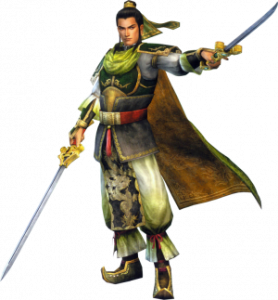So, here’s a game I’ve not played for a couple of years, but my friend came over to my place today and we spent a couple of hours with it. Romance of the Three Kingdoms XI. We’ve played all of them from VII onwards, and the series is commendably varied in its approach. In some you control a single general and can give orders based on your position; in others you may have different levels of control. In XI you don’t control any one individual, but the entire faction you have chosen.

And it struck me today that it really is a remarkably deep, genuinely strategic affair, in a way that few other games I can call to mind are. Every city is an individual unit, with its own production, farming, income, etc., and this all gets influenced by how you develop them and stuff. But the interesting part is how everything is quite discrete and the interactions have to be done consciously, by you. If one city is starving and another has plenty, you need to set up a supply transport to move grain. If you build a ton of spears in a secure province, you need to have them shipped to the front in order to use them. Your units themselves need to set out with food in order to stay in the field. It’s not a civ or city building game by any reasonable stretch of the imagination, but it is a game about war and not just fighting. It is a game about logistics. You have to worry about supplies, recruiting troops, keeping your cities in good order, developing your cities, keeping your generals loyal, locating and recruiting generals, diplomatic dealing with other factions, providing weapons, research, and money. On top of the fighting.
It really is categorically commendable, because it’s one of far too few wargames that seems to really care about this sort of thing. In Han China, you most certainly would have supply problems unless you planned very well. And as many are fond of saying, logistics is the difference between victory and defeat.

Sounds fun. I’ve never heard of a series where your actual method of control changes from game to game… does it follow a continuous story?
The overall story is the same each time, the Romance of the Three Kingdoms (A novel based on the period of the Three Kingdoms in China). You start in 184AD with the Yellow Turban Rebellion and then carry on through until you either unify China or the year 280, whichever comes first. Same stuff as in Dynasty Warriors and Kessen, but with a different approach.
Also in RoTK series(and other Koei games) more important (than in western strategy games) are something that I called human resources.
Any character in RoTK have his own backstory and friends/sworn enemies. Kill somebody friend/brother and he will come back at you.
You actually need NPC for everything. In most of western strategy games when you need something done you click and it is done. In Koei games you send a NPC to do his job.
Want better farm – you send this guy in funny hat to do it. Wanna better trained soldiers – this guy in funny helmet wait for job. Wanna start invansion – you need generals to lead your armies. Wanna bulid up cities – you need governors. Almost everything is done by your characters(and you lead one of the game characters) companions or vasals(who can perform diffrent roles they canb serv as spies, generals, governors, burecrats etc). Your character have limited actions to use in one turn. So having numerous and skilled people under your command is key to win.
Only downside I find that the story happen in ancient China. And so on all characters(and cities) have funny names like Yu Zho, Zho Yu etc. Yeah. Easy to forget who is who or who is Hu.
I dream that KOEI do a game in old RoTK fashion but based on medevial Europe.
Other KOEI good series are Nobunaga Ambitions(RoTK but in Japan) and Genghis Khan(happen in whole Euroasia and have strategic, operational and tactical combat included).
I wish Keoi will have RoTK Xi for android tablet
So that I can kill time when I am stuck in an airplane for over 12 hours
I, too, am longing for R3K XI for android! And for an Uncharted Waters with random land masses, cities, etc, so it is more adventurous, less predictable.